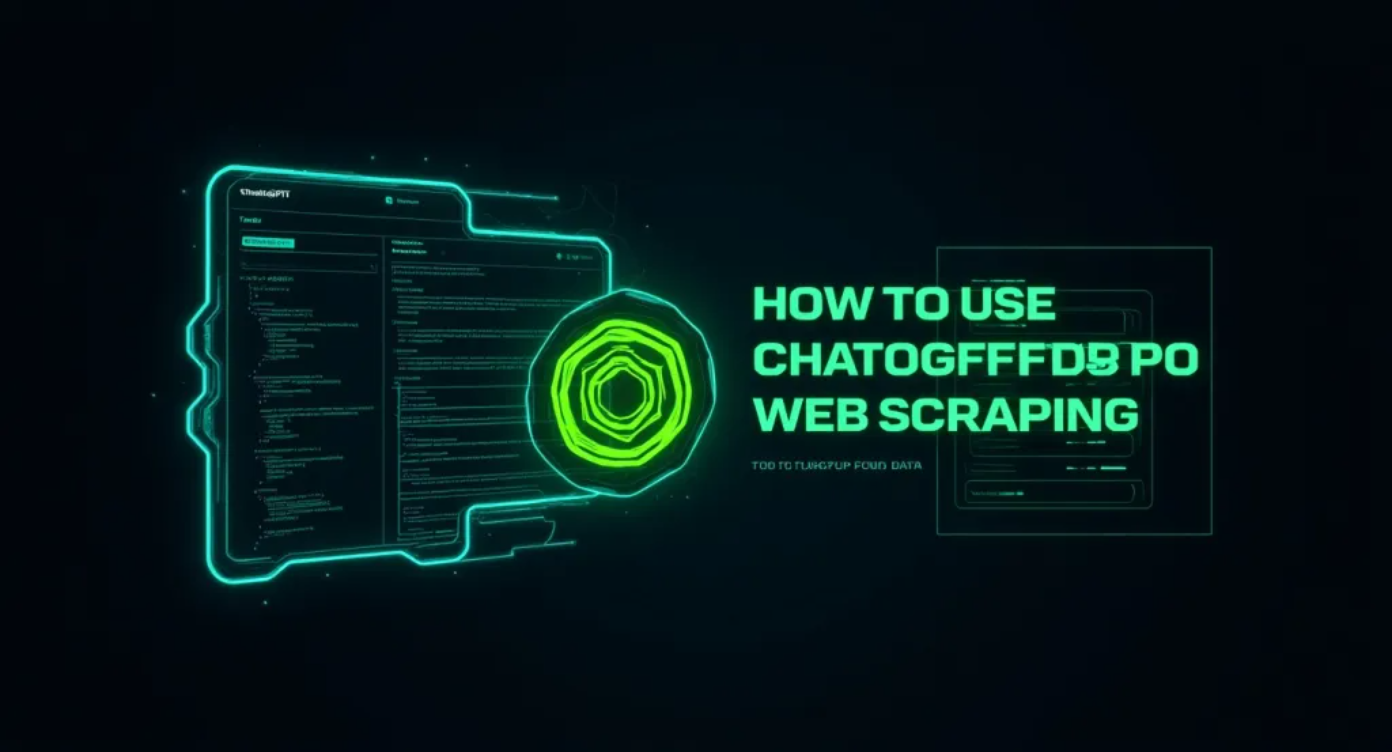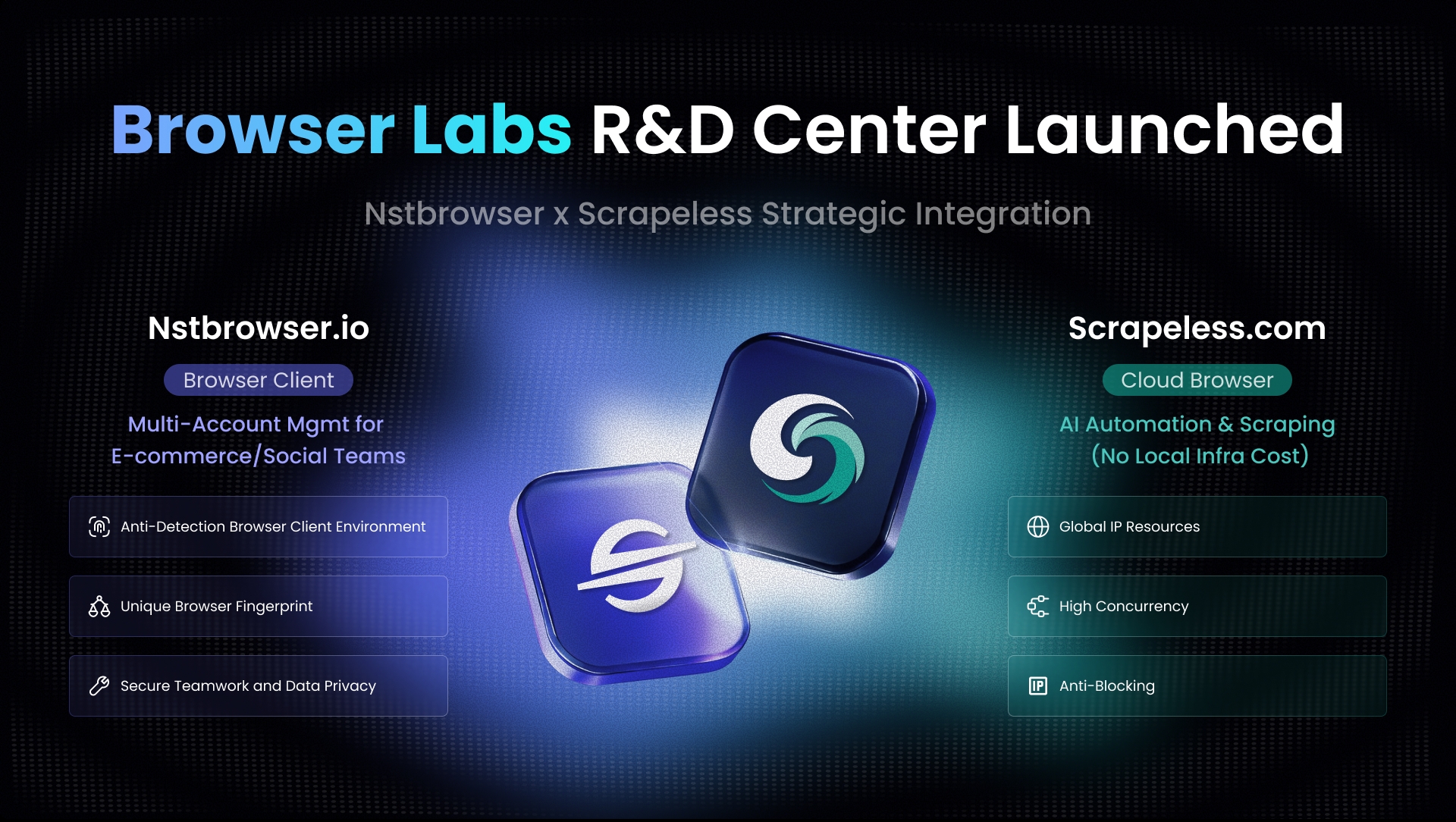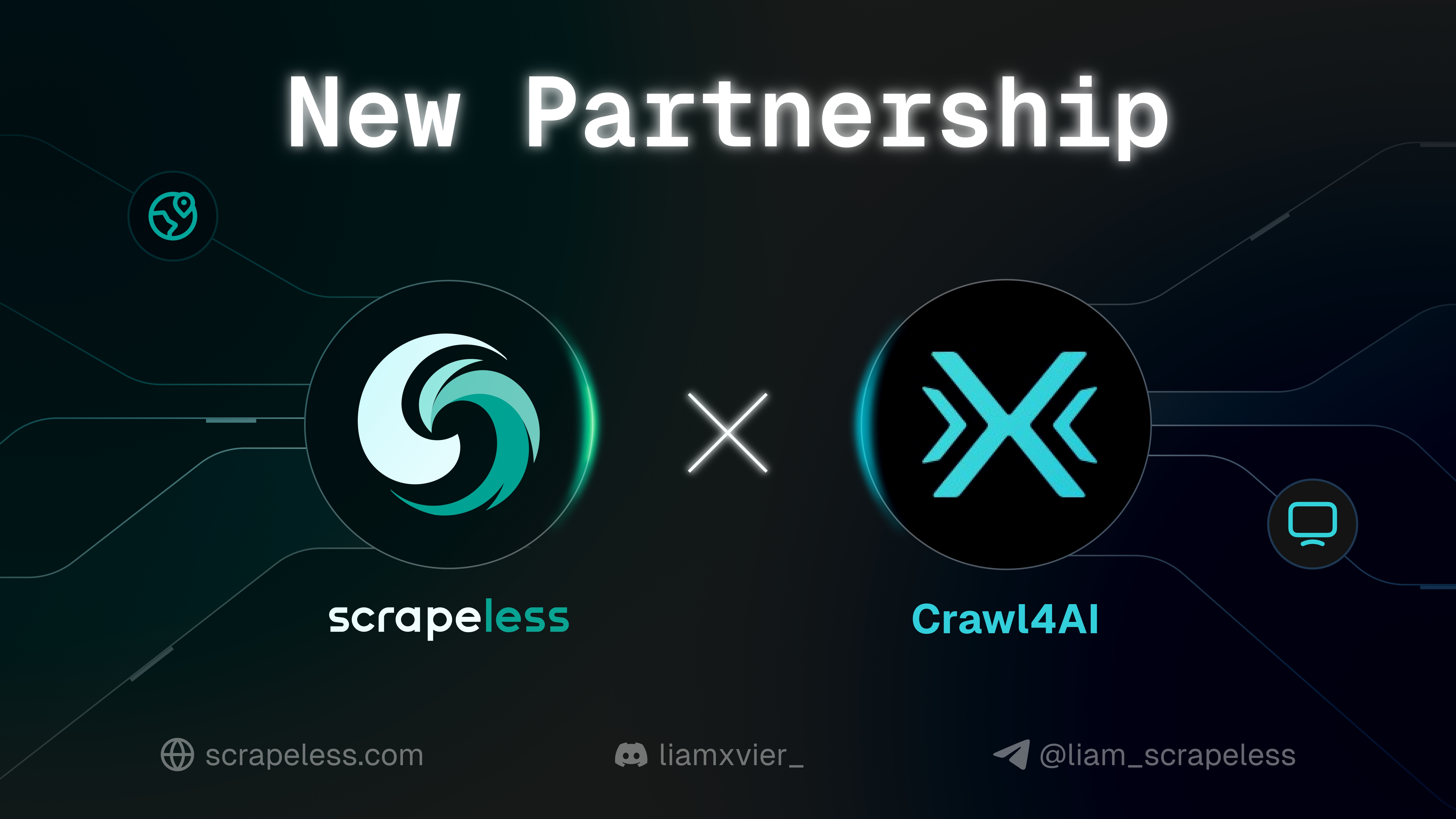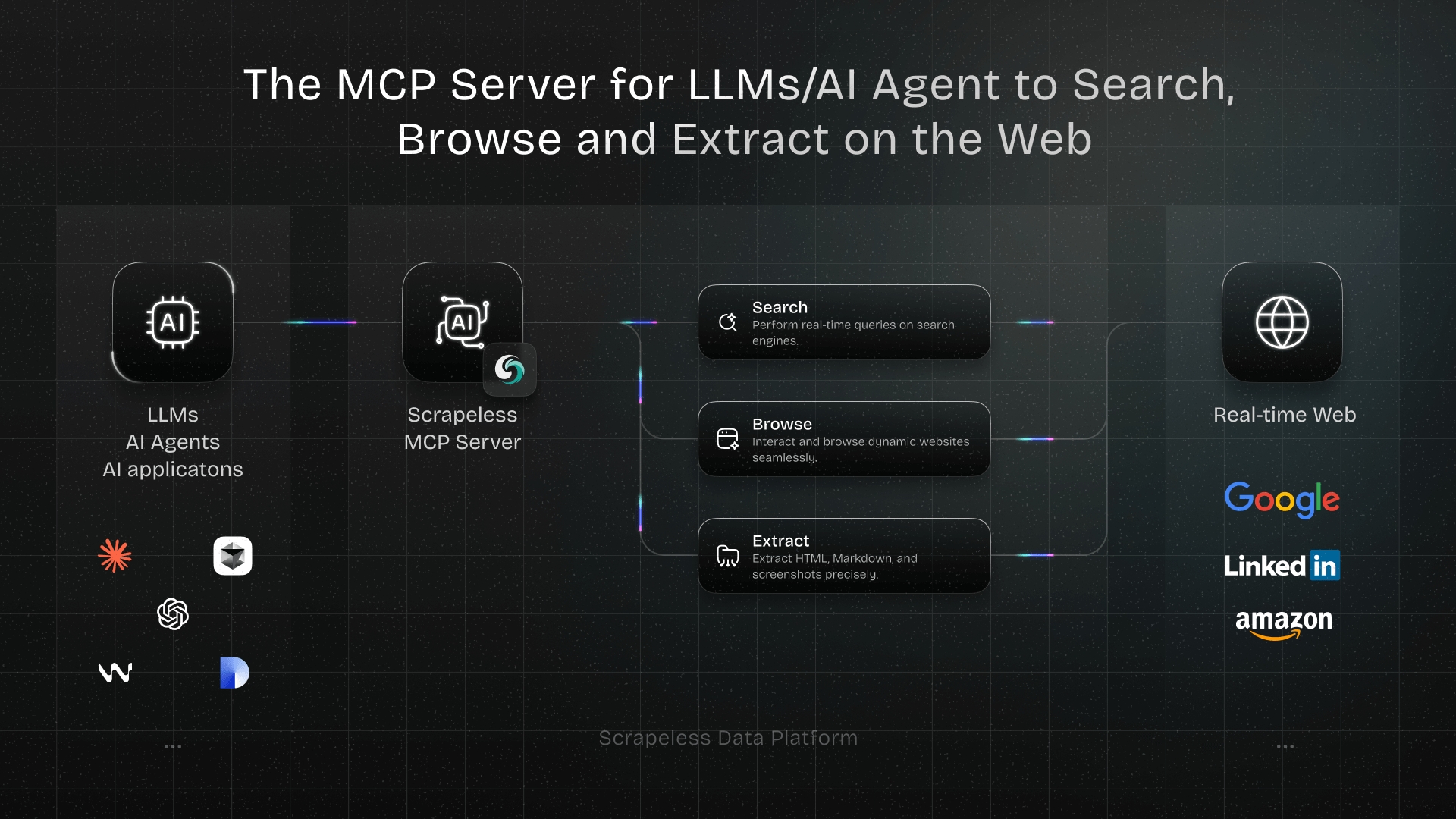How to Use ChatGPT for Web Scraping in 2025
Web Data Collection Specialist
Introduction
In 2025, using ChatGPT for web scraping has become a game-changer for developers and data scientists. This guide provides a comprehensive overview of how to leverage ChatGPT to build powerful and efficient web scrapers. We will explore 10 detailed solutions, from basic to advanced, to help you extract data from any website. Whether you are a seasoned developer or just starting, this article will provide you with the knowledge and tools to master web scraping with ChatGPT. Our goal is to equip you with practical, step-by-step instructions and code examples to streamline your data extraction workflows.
Key Takeaways
- ChatGPT as a Code Generator: Learn how ChatGPT can write web scraping scripts in various programming languages, saving you time and effort.
- Handling Complex Scenarios: Discover techniques for scraping dynamic websites, dealing with anti-bot measures, and extracting data from complex HTML structures.
- Advanced Web Scraping Techniques: Explore how to use ChatGPT for tasks like data cleaning, data transformation, and even building complete web scraping pipelines.
- Ethical Considerations: Understand the importance of ethical web scraping and how to use ChatGPT responsibly.
- Scrapeless Integration: See how Scrapeless can complement your ChatGPT-powered web scraping projects.
10 Ways to Use ChatGPT for Web Scraping
Here are 10 detailed solutions for using ChatGPT for web scraping, ranging from simple to advanced use cases.
1. Generating Basic Scraping Scripts
ChatGPT can generate basic web scraping scripts in Python using libraries like BeautifulSoup and Requests. You can simply provide a prompt with the target URL and the data you want to extract.
Prompt:
"Write a Python script to scrape the title and price of products from the following URL: https://sandbox.oxylabs.io/products"
ChatGPT-Generated Code:
python
import requests
from bs4 import BeautifulSoup
url = "https://sandbox.oxylabs.io/products"
response = requests.get(url)
soup = BeautifulSoup(response.content, "html.parser")
products = soup.select(".product-card")
for product in products:
title = product.select_one("h4").get_text(strip=True)
price = product.select_one(".price-wrapper").get_text(strip=True)
print(f"Title: {title}, Price: {price}")This solution is perfect for simple, static websites. For more complex scenarios, you might need to provide more detailed instructions to ChatGPT. For more information on the basics of web scraping, you can refer to this article on e-commerce scraping.
2. Scraping Dynamic Websites with Selenium
For websites that use JavaScript to load content dynamically, you can ask ChatGPT to generate a script using Selenium. Selenium automates a web browser, allowing you to interact with the page just like a human user.
Prompt:
"Write a Python script using Selenium to scrape the top 5 tweets from the Apify Twitter page: https://twitter.com/apify"
ChatGPT-Generated Code:
python
from selenium import webdriver
from selenium.webdriver.common.by import By
from selenium.webdriver.chrome.service import Service
from webdriver_manager.chrome import ChromeDriverManager
driver = webdriver.Chrome(service=Service(ChromeDriverManager().install()))
driver.get("https://twitter.com/apify")
# Wait for the page to load
driver.implicitly_wait(10)
tweets = driver.find_elements(By.CSS_SELECTOR, "[data-testid='tweet']")
for tweet in tweets[:5]:
print(tweet.text)
driver.quit()This approach is more robust for modern web applications. To learn more about advanced web scraping techniques, check out our guide on browser-based scraping.
3. Extracting Data from Tables
ChatGPT can also help you extract data from HTML tables. You can ask it to generate a script that parses the table and saves the data to a CSV file.
Prompt:
"Write a Python script to scrape the data from the table on this page and save it as a CSV file: https://www.w3schools.com/html/html_tables.asp"
ChatGPT-Generated Code:
python
import requests
import pandas as pd
from bs4 import BeautifulSoup
url = "https://www.w3schools.com/html/html_tables.asp"
response = requests.get(url)
soup = BeautifulSoup(response.content, "html.parser")
table = soup.find("table", {"id": "customers"})
df = pd.read_html(str(table))[0]
df.to_csv("customers.csv", index=False)
print("Data saved to customers.csv")This is a very efficient way to extract structured data. For more on data extraction and manipulation, see this article on market research data collection.
4. Handling Pagination
Many websites display data across multiple pages. ChatGPT can help you write scripts that navigate through these pages to collect all the necessary data. This often involves identifying the pagination links or parameters.
Prompt:
"Create a Python script using Requests and BeautifulSoup to scrape product names from all pages of an e-commerce site with pagination. The base URL is
https://example.com/products?page=and pages go up to 5."
ChatGPT-Generated Code:
python
import requests
from bs4 import BeautifulSoup
all_product_names = []
for page_num in range(1, 6): # Assuming 5 pages
url = f"https://example.com/products?page={page_num}"
response = requests.get(url)
soup = BeautifulSoup(response.content, "html.parser")
products = soup.select(".product-name") # Replace with actual product name selector
for product in products:
all_product_names.append(product.get_text(strip=True))
for name in all_product_names:
print(name)This method ensures comprehensive data collection from multi-page sources. For more on handling large-scale data, consider solutions like Deep SERP API.
5. Extracting Data from APIs
Sometimes, websites load data through internal APIs. ChatGPT can assist in identifying these API endpoints and generating code to directly query them, which is often more efficient than scraping HTML.
Prompt:
"How can I use Python to extract data from a REST API endpoint? Provide an example using
requeststo fetch JSON data fromhttps://api.example.com/dataand parse it."
ChatGPT-Generated Code:
python
import requests
import json
url = "https://api.example.com/data"
response = requests.get(url)
if response.status_code == 200:
data = response.json()
print(json.dumps(data, indent=4))
else:
print(f"Failed to retrieve data: {response.status_code}")Direct API interaction is often faster and more reliable. Learn more about efficient data retrieval with Scraping API.
6. Handling Anti-Scraping Measures (Proxies and Headers)
Websites often employ anti-scraping techniques. ChatGPT can suggest strategies like rotating proxies and custom headers to avoid getting blocked. It can generate code snippets to implement these measures.
Prompt:
"Provide a Python
requestsexample that uses a proxy and custom User-Agent header to make a web request."
ChatGPT-Generated Code:
python
import requests
url = "https://httpbin.org/headers"
proxies = {
"http": "http://your_proxy_ip:port",
"https": "https://your_proxy_ip:port",
}
headers = {
"User-Agent": "Mozilla/5.0 (Windows NT 10.0; Win64; x64) AppleWebKit/537.36 (KHTML, like Gecko) Chrome/91.0.4472.124 Safari/537.36"
}
try:
response = requests.get(url, proxies=proxies, headers=headers, timeout=10)
response.raise_for_status() # Raise HTTPError for bad responses (4xx or 5xx)
print(response.text)
except requests.exceptions.RequestException as e:
print(f"Request failed: {e}")Using proxies and managing headers are crucial for sustained scraping operations. Explore robust proxy solutions at Scrapeless Proxies.
7. Data Cleaning and Transformation
Raw scraped data often requires cleaning and transformation before it can be used. ChatGPT can help you write Python functions to clean text, convert data types, and structure the data into a usable format.
Prompt:
"Write a Python function that takes a list of strings, removes leading/trailing whitespace, converts them to lowercase, and removes any non-alphanumeric characters except spaces."
ChatGPT-Generated Code:
python
import re
def clean_text_data(data_list):
cleaned_data = []
for item in data_list:
# Remove leading/trailing whitespace
cleaned_item = item.strip()
# Convert to lowercase
cleaned_item = cleaned_item.lower()
# Remove non-alphanumeric characters except spaces
cleaned_item = re.sub(r'[^a-z0-9\s]', '', cleaned_item)
cleaned_data.append(cleaned_item)
return cleaned_data
# Example usage:
raw_data = [" Hello World! ", " Python Web Scraping ", "Data@123 "]
cleaned_data = clean_text_data(raw_data)
print(cleaned_data)Effective data cleaning is crucial for data quality. This process ensures your extracted information is ready for analysis. For more on data quality, refer to Scrapeless data validation.
8. Error Handling and Logging
Robust web scrapers include error handling and logging mechanisms to manage unexpected issues like network errors or changes in website structure. ChatGPT can provide code for try-except blocks and logging configurations.
Prompt:
"Provide a Python example for web scraping that includes error handling for network issues and basic logging to a file."
ChatGPT-Generated Code:
python
import requests
import logging
# Configure logging
logging.basicConfig(filename='scraper.log', level=logging.INFO,
format='%(asctime)s - %(levelname)s - %(message)s')
def scrape_page(url):
try:
response = requests.get(url, timeout=10)
response.raise_for_status() # Raise HTTPError for bad responses (4xx or 5xx)
logging.info(f"Successfully scraped {url}")
return response.text
except requests.exceptions.Timeout:
logging.error(f"Timeout error while scraping {url}")
return None
except requests.exceptions.RequestException as e:
logging.error(f"Request error while scraping {url}: {e}")
return None
# Example usage:
html_content = scrape_page("https://www.example.com")
if html_content:
print("Content received (check log for details).")
else:
print("Failed to get content (check log for details).")Proper error handling ensures your scraper runs smoothly and provides insights into issues. This is vital for maintaining reliable data streams.
9. Building a Simple Web Scraping API with Flask
ChatGPT can help you create a simple web API using Flask that exposes your scraping functionality. This allows other applications to request data from your scraper.
Prompt:
"Write a basic Flask application in Python that has an endpoint
/scrapewhich takes a URL as a query parameter and returns the HTML content of that URL."
ChatGPT-Generated Code:
python
from flask import Flask, request
import requests
app = Flask(__name__)
@app.route('/scrape')
def scrape():
url = request.args.get('url')
if not url:
return "Please provide a URL parameter", 400
try:
response = requests.get(url)
response.raise_for_status()
return response.text
except requests.exceptions.RequestException as e:
return f"Error scraping URL: {e}", 500
if __name__ == '__main__':
app.run(debug=True)Creating an API for your scraper makes it reusable and scalable. This enables integration with other services. For more on API development, consider resources on Scraping API solutions.
10. Using ChatGPT for XPath Generation
While CSS selectors are common, XPath offers more flexibility for complex selections. ChatGPT can generate XPath expressions based on your description of the desired element.
Prompt:
"Generate an XPath expression to select the text content of all
<h2>tags that are direct children of a<div>with the classmain-content."
ChatGPT-Generated XPath:
xpath
//div[@class='main-content']/h2/text()XPath can be powerful for precise element targeting. ChatGPT simplifies the creation of these complex expressions. This enhances your ability to extract specific data points.
Comparison Summary: ChatGPT vs. Traditional Web Scraping
| Feature | ChatGPT-Assisted Web Scraping | Traditional Web Scraping |
|---|---|---|
| Development Speed | Significantly faster due to AI-generated code. | Slower, requires manual coding and debugging. |
| Complexity Handling | Good for dynamic content and anti-bot measures with proper prompts. | Requires deep technical knowledge and custom solutions. |
| Code Quality | Varies; requires review and refinement. | Consistent if developed by experienced engineers. |
| Maintenance | Easier to adapt to website changes with new prompts. | Can be time-consuming due to brittle selectors. |
| Learning Curve | Lower for beginners; focuses on prompt engineering. | Higher; requires programming skills and web knowledge. |
| Cost | OpenAI API costs; potentially lower development hours. | Developer salaries; potentially higher initial investment. |
| Flexibility | High; adaptable to various tasks with prompt adjustments. | High, but requires manual code changes for each new task. |
Case Studies and Application Scenarios
ChatGPT-powered web scraping offers diverse applications across industries. Here are a few examples:
E-commerce Price Monitoring
An online retailer used ChatGPT to build a script that monitors competitor prices daily. The script, generated and refined by ChatGPT, navigates product pages, extracts pricing data, and flags significant changes. This automation saved countless hours compared to manual checks, allowing the retailer to adjust pricing strategies dynamically. This application highlights ChatGPT's ability to automate repetitive data collection tasks, providing a competitive edge in fast-moving markets.
Real Estate Market Analysis
A real estate agency leveraged ChatGPT to scrape property listings from various portals. ChatGPT helped create scripts to extract details like property type, location, price, and amenities. The collected data was then analyzed to identify market trends, property valuations, and investment opportunities. This enabled the agency to provide data-driven insights to clients, improving their decision-making process. The ease of generating tailored scrapers for different platforms was a key benefit.
Social Media Sentiment Analysis
A marketing firm utilized ChatGPT to gather public comments and reviews from social media platforms regarding specific brands. ChatGPT assisted in generating scripts that extracted user-generated content, which was then fed into a sentiment analysis model. This allowed the firm to gauge public perception and identify areas for brand improvement. The ability to quickly adapt scrapers to new social media layouts and extract relevant text was crucial for timely insights.
Why Choose Scrapeless to Complement Your ChatGPT Web Scraping?
While ChatGPT excels at generating code and providing guidance, real-world web scraping often encounters challenges like anti-bot measures, CAPTCHAs, and dynamic content. This is where a robust web scraping service like Scrapeless becomes invaluable. Scrapeless offers a suite of tools designed to handle these complexities, allowing you to focus on data analysis rather than infrastructure.
Scrapeless complements ChatGPT by providing:
- Advanced Anti-Bot Bypassing: Scrapeless automatically handles CAPTCHAs, IP blocks, and other anti-scraping mechanisms, ensuring consistent data flow. This frees you from constantly debugging and updating your ChatGPT-generated scripts to bypass new defenses.
- Headless Browser Functionality: For dynamic, JavaScript-rendered websites, Scrapeless provides powerful headless browser capabilities without the overhead of managing your own Selenium or Playwright instances. This ensures you can scrape even the most complex sites with ease.
- Proxy Management: Scrapeless offers a vast pool of rotating proxies, ensuring your requests appear to come from different locations and reducing the likelihood of IP bans. This is a critical component for large-scale or continuous scraping operations.
- Scalability and Reliability: With Scrapeless, you can scale your scraping operations without worrying about server infrastructure or maintenance. Their robust platform ensures high uptime and reliable data delivery, making your ChatGPT-powered projects production-ready.
- Simplified API Access: Scrapeless provides a straightforward API that integrates seamlessly with your Python scripts, making it easy to incorporate advanced scraping features without extensive coding. This allows you to quickly implement solutions suggested by ChatGPT.
By combining the code generation power of ChatGPT with the robust infrastructure of Scrapeless, you can build highly efficient, reliable, and scalable web scraping solutions. This synergy allows you to overcome common hurdles and focus on extracting valuable insights from the web.
Conclusion
ChatGPT has revolutionized web scraping by making it more accessible and efficient. From generating basic scripts to handling complex scenarios like dynamic content and anti-bot measures, ChatGPT empowers developers to build powerful data extraction solutions. Its ability to quickly produce code snippets and provide guidance significantly reduces development time and effort. However, for robust, scalable, and reliable web scraping, integrating with a specialized service like Scrapeless is highly recommended. Scrapeless handles the intricate challenges of proxy management, anti-bot bypassing, and headless browser operations, allowing you to focus on leveraging the extracted data for your business needs. By combining the intelligence of ChatGPT with the infrastructure of Scrapeless, you can unlock the full potential of web data in 2025 and beyond.
Ready to streamline your web scraping workflows? Try Scrapeless today and experience the power of seamless data extraction.
Frequently Asked Questions (FAQ)
Q1: Can ChatGPT directly scrape websites?
No, ChatGPT cannot directly scrape websites. It is a language model that generates code, provides guidance, and explains concepts related to web scraping. You need to execute the generated code in a programming environment (like Python with libraries such as BeautifulSoup, Requests, or Selenium) to perform the actual scraping. ChatGPT acts as a powerful assistant in the development process.
Q2: Is it ethical to use ChatGPT for web scraping?
Using ChatGPT for web scraping is ethical as long as the scraping itself is ethical. Ethical web scraping involves respecting robots.txt files, not overloading servers with requests, avoiding the collection of sensitive personal data without consent, and adhering to a website's terms of service. ChatGPT helps you write the code, but the responsibility for ethical conduct lies with the user. For more on ethical web scraping, refer to this DataCamp article.
Q3: What are the limitations of using ChatGPT for web scraping?
While powerful, ChatGPT has limitations. It may generate code that requires debugging, especially for highly complex or frequently changing website structures. It doesn't execute code or handle real-time website interactions. Additionally, its knowledge is based on its training data, so it might not always provide the most up-to-date solutions for very recent anti-scraping techniques. It also cannot bypass CAPTCHAs or IP blocks on its own; these require specialized tools or services.
Q4: How can I improve the accuracy of ChatGPT-generated scraping code?
To improve accuracy, provide clear, specific, and detailed prompts to ChatGPT. Include the target URL, the exact data points you need, the HTML structure (if known), and any specific libraries or methods you prefer. If the initial code fails, provide the error messages or describe the unexpected behavior, and ask ChatGPT to refine the code. Iterative prompting and testing are key to achieving accurate results.
Q5: How does Scrapeless enhance ChatGPT-powered web scraping?
Scrapeless enhances ChatGPT-powered web scraping by providing the necessary infrastructure to overcome common scraping challenges. While ChatGPT generates the code, Scrapeless handles anti-bot measures, CAPTCHAs, proxy rotation, and headless browser execution. This combination allows you to leverage ChatGPT's code generation capabilities for rapid development, while relying on Scrapeless for reliable, scalable, and robust data extraction from even the most challenging websites.
References
At Scrapeless, we only access publicly available data while strictly complying with applicable laws, regulations, and website privacy policies. The content in this blog is for demonstration purposes only and does not involve any illegal or infringing activities. We make no guarantees and disclaim all liability for the use of information from this blog or third-party links. Before engaging in any scraping activities, consult your legal advisor and review the target website's terms of service or obtain the necessary permissions.



